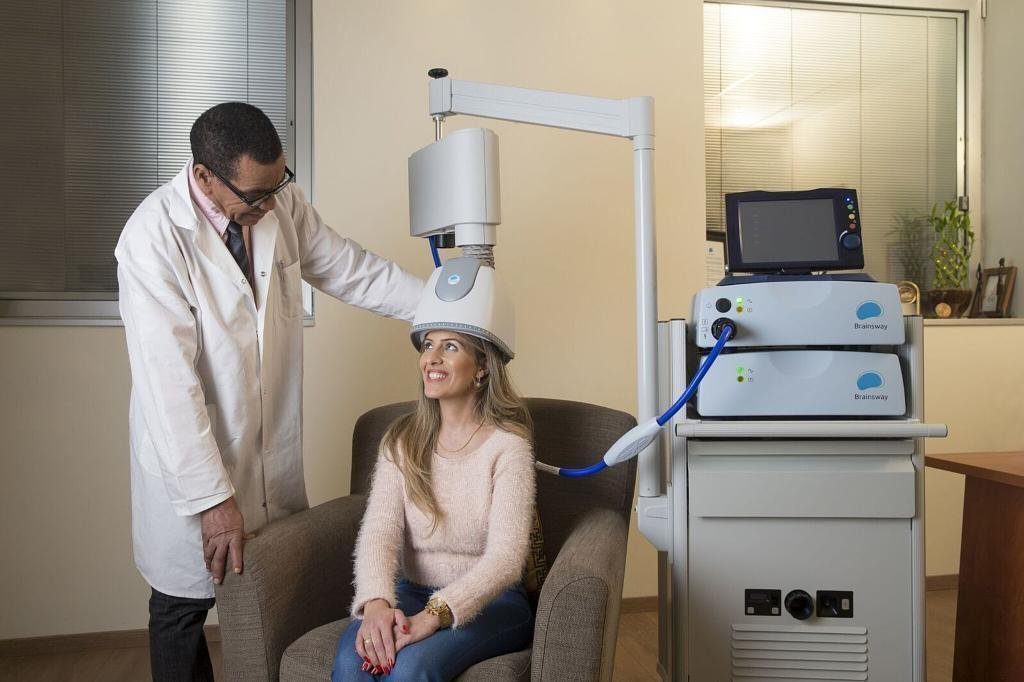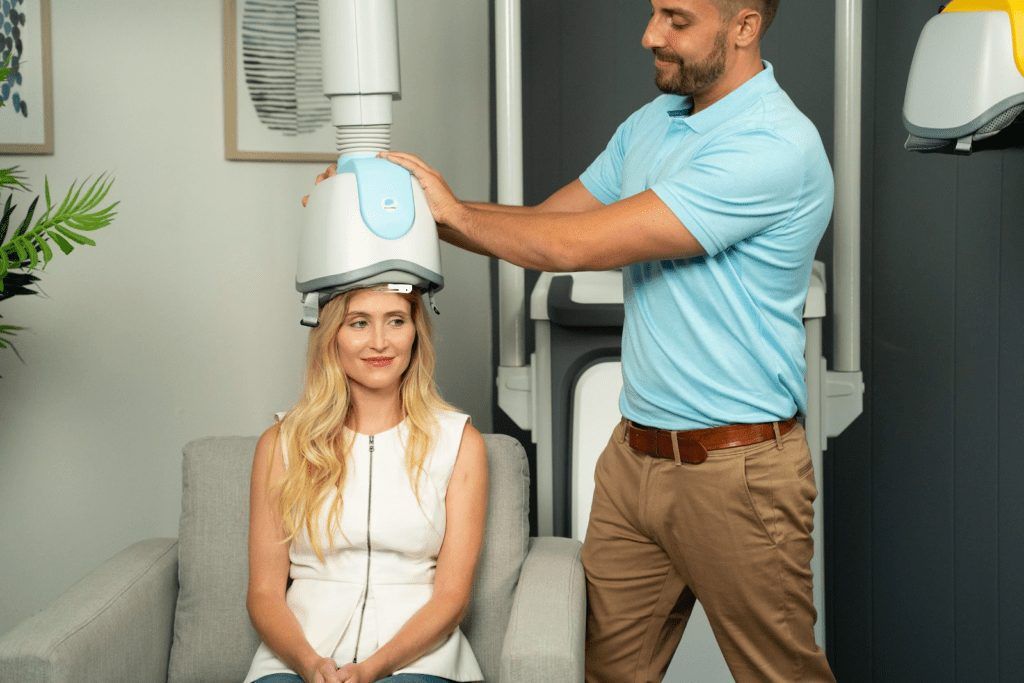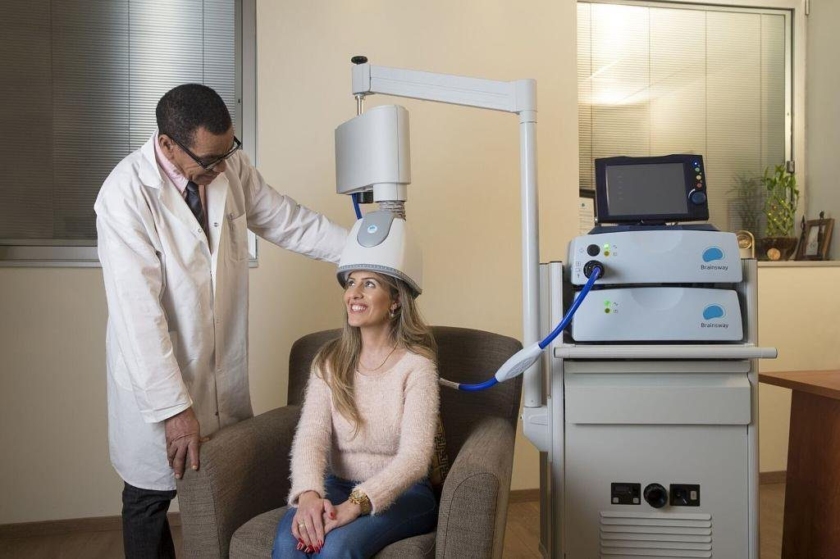
Transcranial magnetic stimulation (TMS) can alleviate symptoms by stimulating brain regions.
Transcranial Magnetic Stimulation (TMS) therapy is a noninvasive brain stimulation technique that employs magnetic fields to stimulate brain nerve cells. It is an FDA-approved treatment for several mental health conditions and is gaining popularity as an outpatient option for mental health care.
Most commonly, TMS therapy is used to treat major depressive disorder (MDD) that has not responded to other treatments such as medication or psychotherapy. However, it has also demonstrated promise in the treatment of other mental health disorders, such as:
- Bipolar disorder: TMS therapy has been found to reduce depressive symptoms in people with bipolar disorder.
- Obsessive-compulsive disorder (OCD): TMS therapy has been shown to alleviate OCD symptoms in some patients, especially those with comorbid depression.
- Post-traumatic stress disorder (PTSD): TMS therapy has demonstrated promising results in reducing PTSD symptoms, such as intrusive thoughts and avoidance behaviors.
- Generalized anxiety disorder (GAD): TMS therapy has been shown to alleviate anxiety symptoms in some GAD patients.
- Schizophrenia: TMS therapy has demonstrated promise for alleviating schizophrenia’s negative symptoms, such as apathy and social withdrawal.

Typically, TMS therapy is administered in an outpatient setting and consists of daily 20-30 minute sessions over the course of several weeks. It is generally well-tolerated and causes few adverse effects. Mild scalp discomfort or headache is the most common unfavorable effect, which is typically treatable with over-the-counter pain medication.
TMS therapy is an FDA-approved treatment for a variety of mental health disorders, including major depressive disorder. It has also shown promise in treating other mental health disorders, including schizophrenia, bipolar disorder, OCD, PTSD, and GAD. TMS therapy is typically administered in an outpatient setting and is non-invasive and well-tolerated.
https://www.youtube.com/embed/F3pYe3Imods?feature=oembedHow deep transcranial magnetic stimulation changed one woman’s life.



